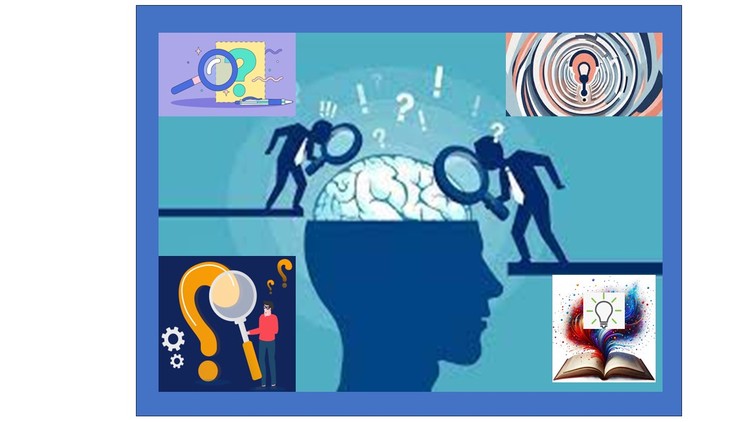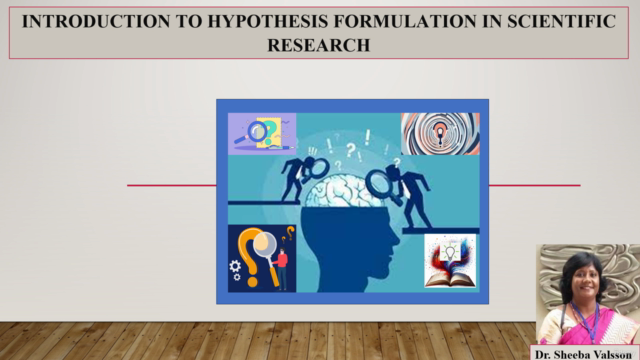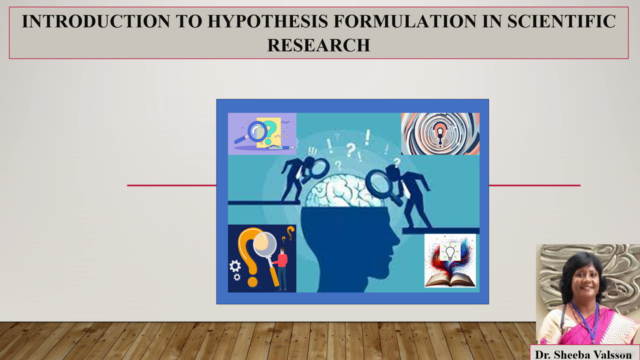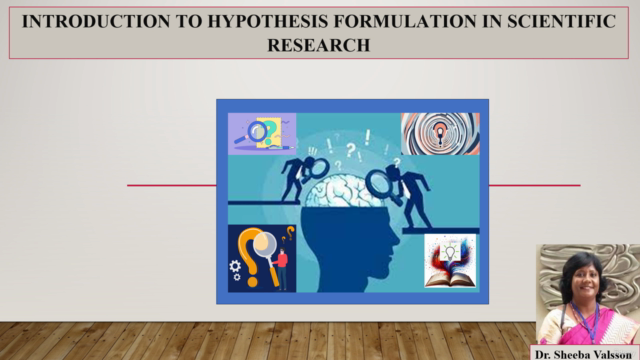Introduction to Hypothesis Formulation inScientific Research

Why take this course?
🚀 Introduction to Hypothesis Formulation in Scientific Research 🧪
Course Description:
Welcome to the world of scientific discovery, where the art of formulating hypotheses is as critical as the experiments themselves. This course, led by Dr. Sheeba Valsson, a distinguished expert in research methodology, will guide you through the intricacies of developing, formulating, and evaluating hypotheses. Understanding the characteristics of a good hypothesis is not just about passing a class or completing a project; it's about setting the stage for groundbreaking research that can change the world.
Why This Course?
- Foundation for Research: Learn how to set the direction and methodology of your investigations with solid hypotheses.
- Enhanced Focus: Hypotheses help define the scope of your study, ensuring you're working within a clear framework.
- Effective Data Collection: Hypotheses facilitate better data collection by aligning with your research objectives.
- Data Analysis and Interpretation: Formulating a hypothesis helps you analyze data more effectively and interpret findings accurately.
- Theoretical Development: Hypotheses contribute to the development of new theories, pushing the boundaries of knowledge in your field.
Course Highlights:
- Crafting Clear Hypotheses: Master the technique of formulating clear and concise hypotheses that can be tested.
- Testable and Impactful Hypotheses: Learn how to create hypotheses that are not only testable but also have a significant impact on your research area.
- Research Design and Methodology: Discover how hypotheses influence the design of experiments and other research methodologies.
- Data-Driven Insights: Gain insights into how hypotheses enable you to draw meaningful conclusions from data.
- Communication Skills: Develop your ability to communicate complex ideas effectively, both in writing and orally.
Course Structure:
-
Understanding Hypotheses 💡
- The role of hypotheses in scientific research.
- Types of hypotheses: null, alternative, and research.
- Characteristics of a well-formulated hypothesis.
-
Developing Your Hypothesis 📈
- Identifying the research question and narrowing it down to a testable hypothesis.
- Refining your hypothesis for clarity and precision.
- Avoiding common pitfalls in hypothesis formulation.
-
Evaluating and Testing Hypotheses 🧐
- Methods for hypothesis testing in different research contexts.
- Statistical analysis and its role in evaluating hypotheses.
- Analyzing results: understanding significance, effect sizes, and confidence intervals.
4 Hypotheses in Different Fields 🌐
- Case studies across various disciplines including life sciences, physics, economics, and social sciences.
- Tailoring hypothesis formulation to your specific field of study.
5 Practical Applications 🛠️
- Real-world examples and exercises to apply what you've learned.
- Peer review and feedback on your own hypotheses.
- Strategies for presenting your research findings effectively.
Who Should Take This Course?
This course is perfect for:
- Undergraduate and Graduate Students: Whether you're in science, engineering, social sciences, or related fields, this course will refine your hypothesis formulation skills.
- Early-Career Researchers and Professionals: Enhance your research capabilities with practical, field-tested techniques.
- Researchers in Industry and R&D: Stay ahead of the curve with innovative approaches to problem-solving and experimentation.
- Curious Minds: If you have a passion for science and research and want to understand the underpinnings of hypothesis formulation, this course is for you!
Join us on this intellectual adventure and master the craft of hypothesis formulation. Your next breakthrough could start with just one idea – a well-formulated hypothesis. 🌟
Enroll now and transform your approach to scientific research! 🔬✨
Course Gallery




Loading charts...